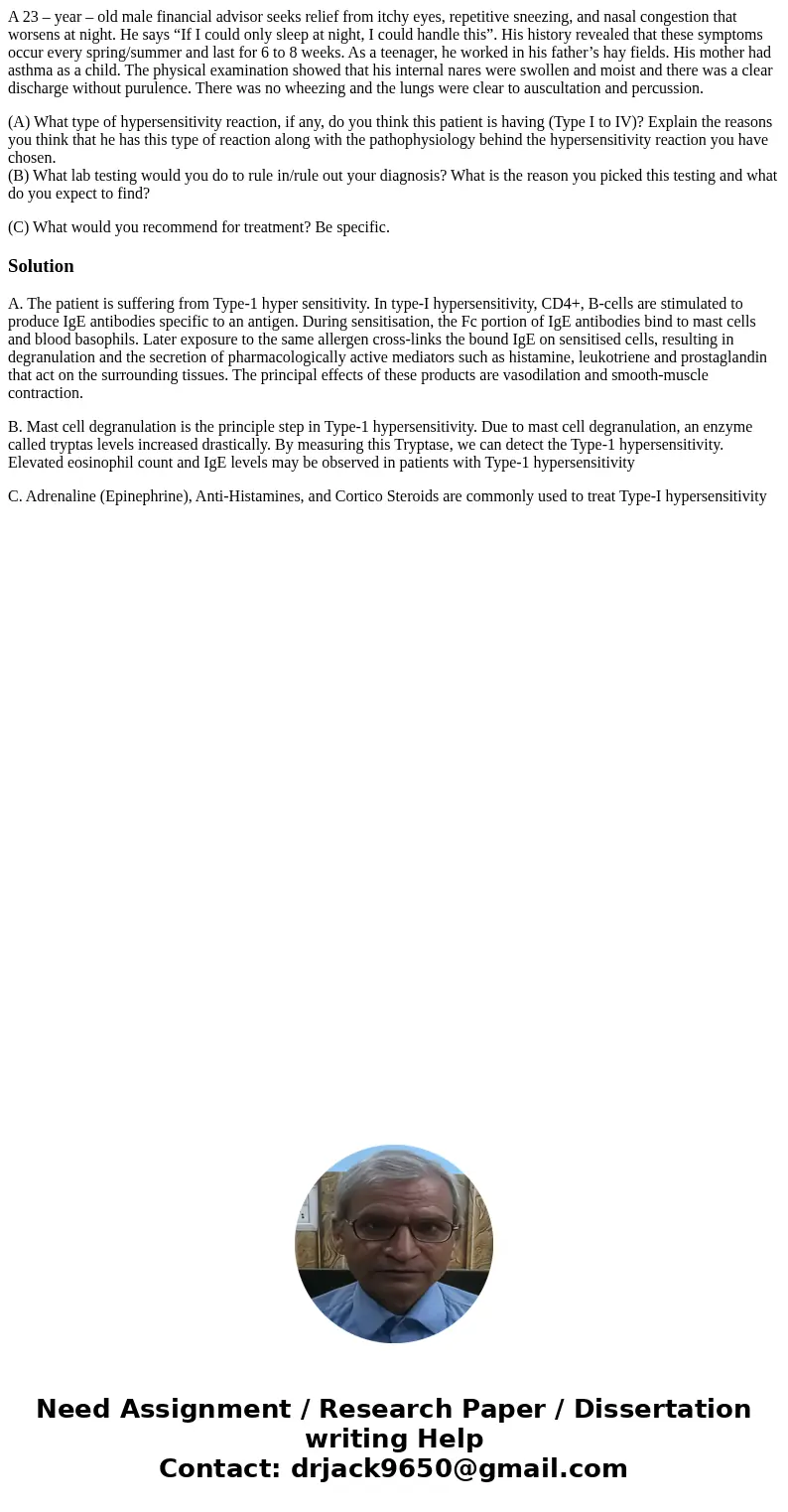A 23 year old male financial advisor seeks relief from itc
A 23 – year – old male financial advisor seeks relief from itchy eyes, repetitive sneezing, and nasal congestion that worsens at night. He says “If I could only sleep at night, I could handle this”. His history revealed that these symptoms occur every spring/summer and last for 6 to 8 weeks. As a teenager, he worked in his father’s hay fields. His mother had asthma as a child. The physical examination showed that his internal nares were swollen and moist and there was a clear discharge without purulence. There was no wheezing and the lungs were clear to auscultation and percussion.
(A) What type of hypersensitivity reaction, if any, do you think this patient is having (Type I to IV)? Explain the reasons you think that he has this type of reaction along with the pathophysiology behind the hypersensitivity reaction you have chosen.
(B) What lab testing would you do to rule in/rule out your diagnosis? What is the reason you picked this testing and what do you expect to find?
(C) What would you recommend for treatment? Be specific.
Solution
A. The patient is suffering from Type-1 hyper sensitivity. In type-I hypersensitivity, CD4+, B-cells are stimulated to produce IgE antibodies specific to an antigen. During sensitisation, the Fc portion of IgE antibodies bind to mast cells and blood basophils. Later exposure to the same allergen cross-links the bound IgE on sensitised cells, resulting in degranulation and the secretion of pharmacologically active mediators such as histamine, leukotriene and prostaglandin that act on the surrounding tissues. The principal effects of these products are vasodilation and smooth-muscle contraction.
B. Mast cell degranulation is the principle step in Type-1 hypersensitivity. Due to mast cell degranulation, an enzyme called tryptas levels increased drastically. By measuring this Tryptase, we can detect the Type-1 hypersensitivity. Elevated eosinophil count and IgE levels may be observed in patients with Type-1 hypersensitivity
C. Adrenaline (Epinephrine), Anti-Histamines, and Cortico Steroids are commonly used to treat Type-I hypersensitivity

 Homework Sourse
Homework Sourse